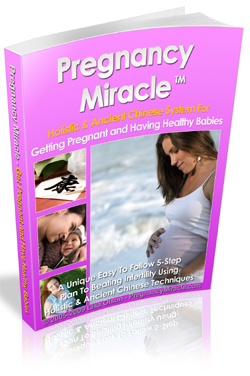Trying to get pregnant is a struggle and a reality for so many women (I know because I’m one of them) but there are things you can do to help improve your chances of
getting pregnant such as diet, fertility supplements,
ovulation timing and more. I’ve previously talked a bit about ovulation timing, so in this post I wanted to go over some of the better vitamin and herb supplements that have helped many women conceive naturally.
Here are my top supplements to get pregnant:
Vitex (Agnus Castus / Chasteberry)
There have been a ton of studies that show how great Vitex is as helping many women fall pregnant and balance their reproductive systems but what does it actually do and how much do you need to take?
Vitex helps you get pregnant by balancing your hormones, which is why it is especially beneficial for women with PCOS (Polycystic Ovary Syndrome). With today’s diets and lifestyles it’s not uncommon to have your balance of estrogen and progesterone out of whack making it difficult to conceive and so Vitex works with the body to balance things out again.
If you have a luteal phase defect (where the second half of your cycle after ovulation is less than 10 days) then many women have reported that Vitex can help correct that.
Vitex does take a while to work within the body so allow up to 3 – 6 months before you see any significant changes.
It can be taken throughout your whole cycle until your
fall pregnant and you can get it in tea, tincture or capsule form whichever you prefer.
Vitamin B6
Vitamin B6 is another great fertility booster and should be taken by all women (not just those trying to get pregnant). Many women say that the used vitamin b6 to get pregnant successfully after trying prior to using it for months without success.
It is beneficial in reducing period cramps, PMS, fluid retention, mood swings, and of course for improving fertility. It will increase your odds of falling pregnant and also for preventing miscarriage in the early weeks.
It’s very good for women who have a luteal phase defect and they will benefit greatly from Vitamin B6 as it helps increase the levels of progesterone in the body. A deficiency in B6 leads to too much estrogen. It’s also great for improving cervical mucus so that sperm can live longer which increases your chance of conceiving each month.
Most women report great results with around 60mg per day but it’s safe to take up to 200mg.
Do you take B6 for your whole cycle? Yes, you can safely take it throughout your whole cycle and it’s best taken in conjunction with the other B group vitamins.
Dong Quai (Angelica Sinensis Root)
Dong Quai is a Chinese herb known for its blood building properties. It is used extensively in China for
fertility problems and to regulate the menstrual cycle.
It can be taken throughout your cycle except when you are menstruating.
Many women claim that Dong Quai is very helpful in implantation by making the uterus soft enough for a fertilized egg to implant and thus making it very helpful in falling pregnant.
Evening Primrose Oil
Evening Primrose Oil (EPO) can help you in getting pregnant by improving the quality of your cervical fluid. It is an essential fatty acid that contains gamma linolenic acid (GLA).
The better quality your cervical mucus, the
more fertile that you become, with the most fertile cervical fluid often known as egg white cervical mucus (ewcm). This fluid is clear, watery and stretchy very much like real egg whites and is what the sperm uses to swim through to reach the egg. The more you have the easier it makes it for the sperm to reach the egg.
Drinking a lot of water can also help in improving your cervical fluid.
Since Evening Primrose Oil can cause uterine contractions, it should only be taken from menstruation to your ovulation day and not after if you are trying to get pregnant.
So if you have been asking yourself what vitamin helps you get pregnant, then I hope this post has helped you.
 Fish oil is a great supplement for improving your fertility, especially if you suffer from inflammatory conditions such as PCOS. And as an added benefit you’ll improve your cervical mucus which is necessary for the sperm to reach the egg when you ovulate.
Fish oil is a great supplement for improving your fertility, especially if you suffer from inflammatory conditions such as PCOS. And as an added benefit you’ll improve your cervical mucus which is necessary for the sperm to reach the egg when you ovulate. 






















